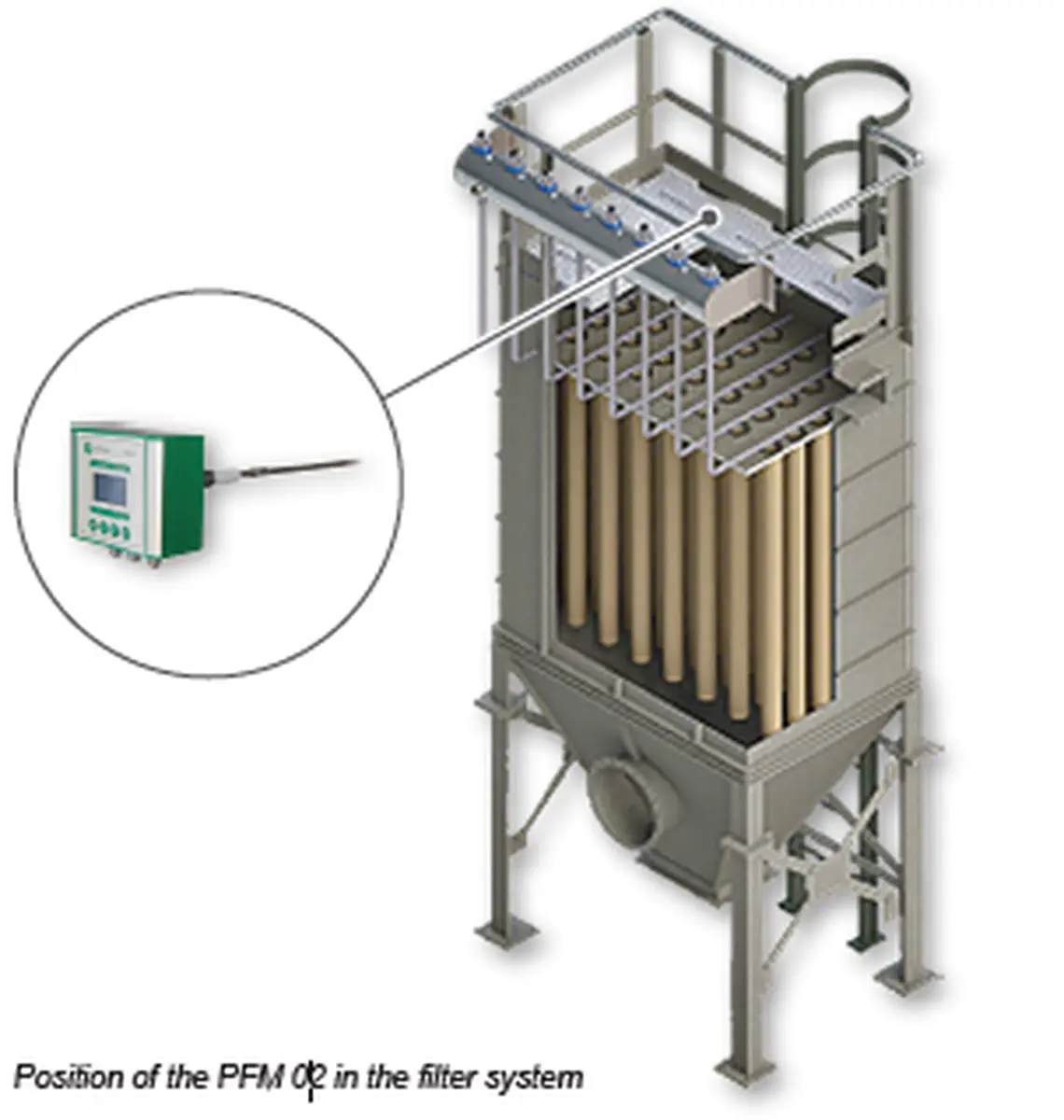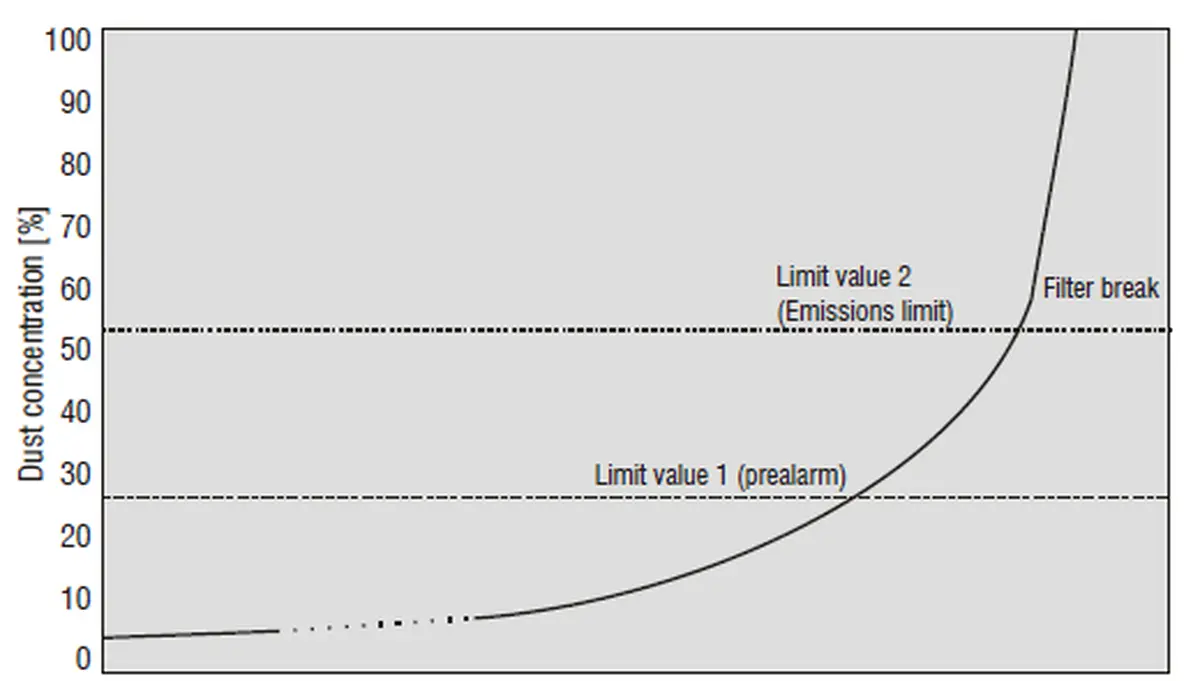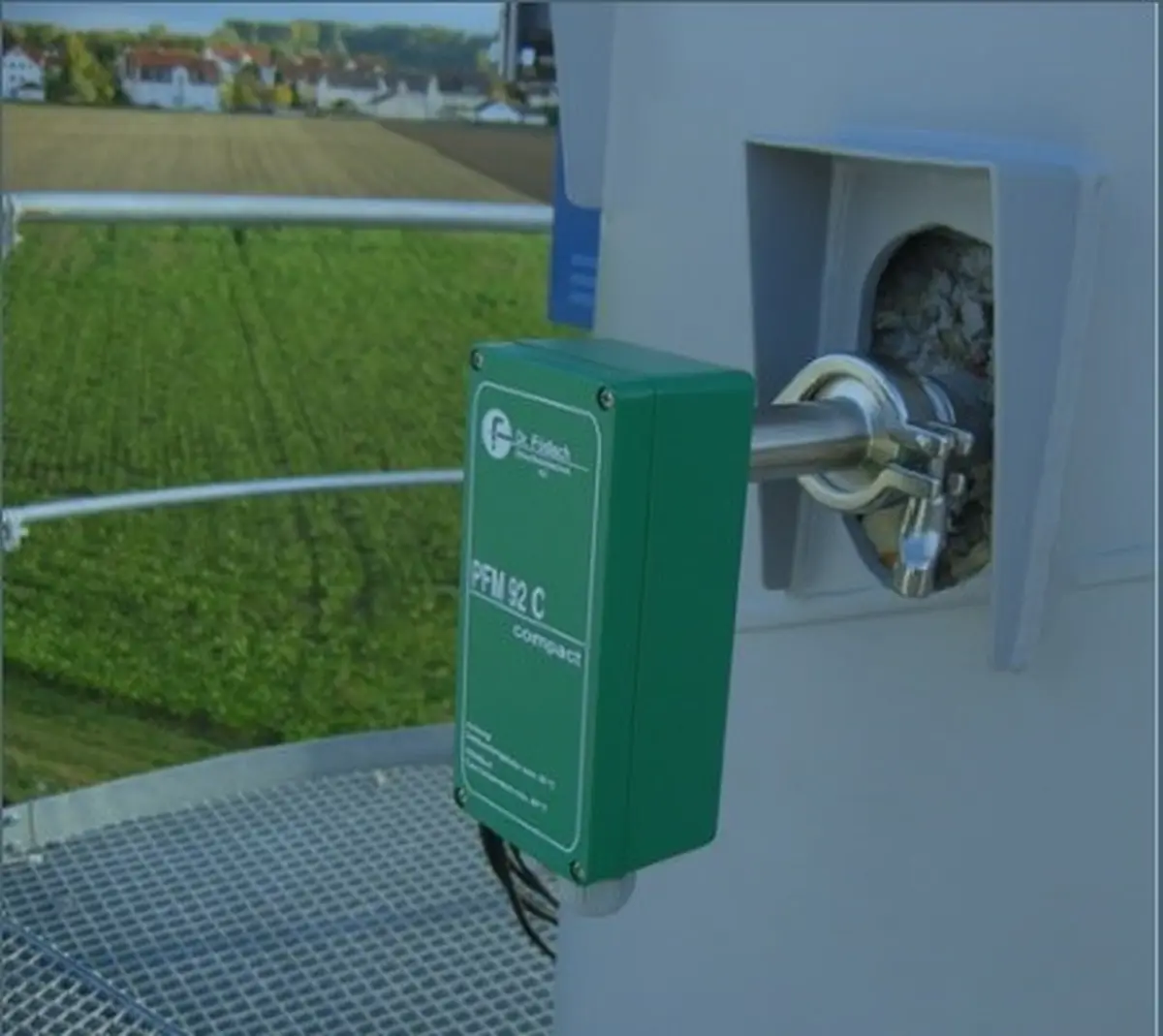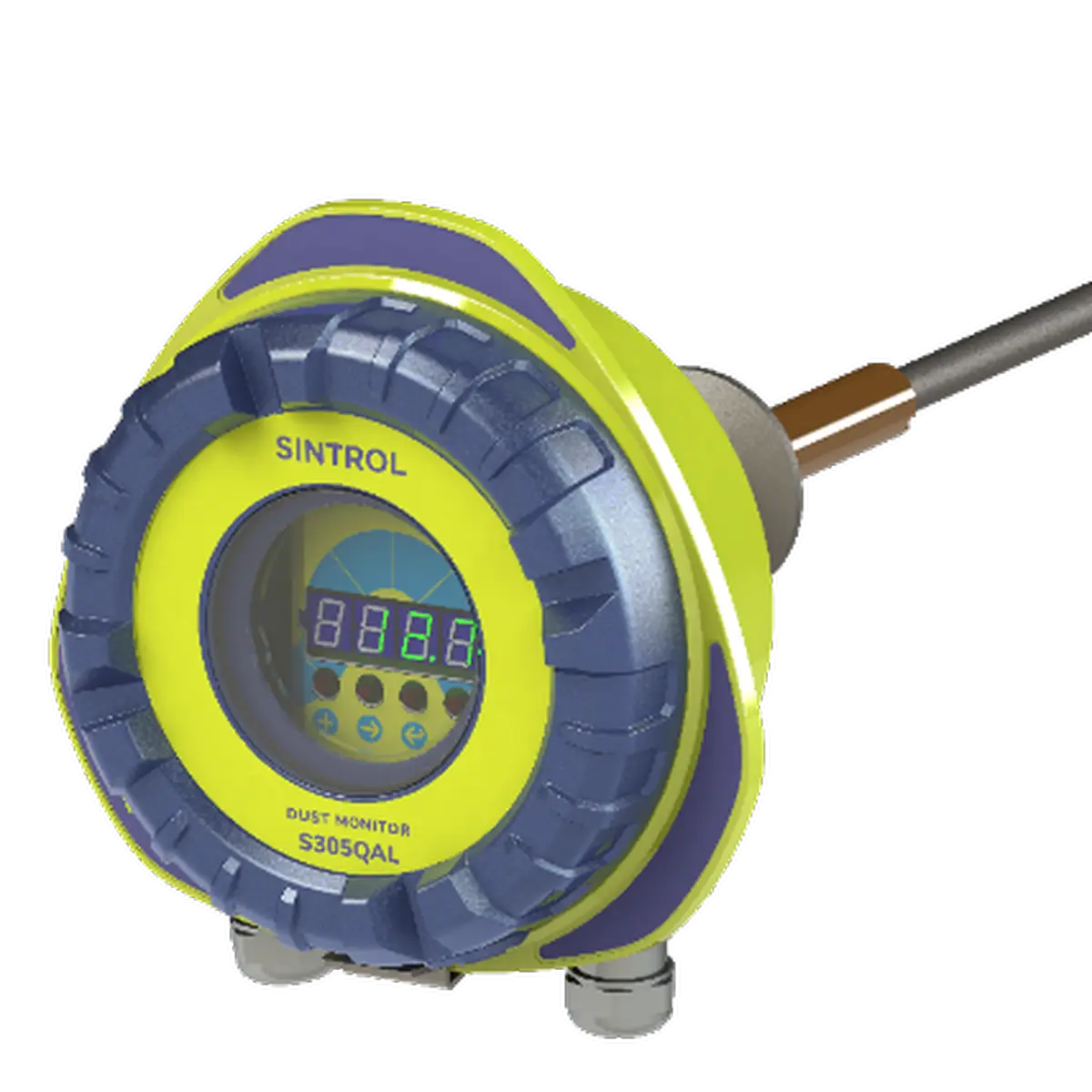Monitoring System for Dust Measurement in Metal Foundries
Importance of Dust Measurement and Filter Monitoring
During the metal casting process, dust is often released, which is extracted and filtered. From both an operational perspective and regulatory requirements, continuously measuring the amount of dust can be important.
Filter systems are commonly equipped with differential pressure measurement to estimate the saturation level of the filter material. However, since this measurement provides no information on the amount of dust being emitted, it is insufficient to assess the overall performance of a filter system. A complete filter monitoring system therefore includes the following measurements:
- Differential pressure measurement; to determine the saturation level of the filter material.
- Flow meter; to determine the amount of air passing through the filter. The output of the flow meter is connected to the corresponding input of the dust meter.
- Dust measurement; using the flow meter to determine the dust concentration per unit of air volume (e.g., mg/m3). Hairline cracks or small perforations in the filter material may not be visible via differential pressure but can be detected by reduced filter performance (increased dust emissions).
Advantages of the Monitoring System
 The dust analyzer is installed on the clean air outlet side.
The dust analyzer is installed on the clean air outlet side.
Even if dust measurement is not required by environmental authorities, the monitoring system described above offers several advantages:
- Continuous insight into the performance of the filter installation.
- Ability to schedule maintenance based on actual measurements.
- Potential cost savings in periodic reporting obligations when measurements are performed by third parties. This depends, among other things, on reporting frequency.
Alarm Threshold and Maintenance Indication
 Besides setting an alarm threshold at the emission limit value, it is also possible to enter a lower value as a maintenance indicator. This allows maintenance to be scheduled based on the actual condition and performance of the filter system, rather than on a fixed time interval or subjective indicators such as visually observing the emission plume.
Besides setting an alarm threshold at the emission limit value, it is also possible to enter a lower value as a maintenance indicator. This allows maintenance to be scheduled based on the actual condition and performance of the filter system, rather than on a fixed time interval or subjective indicators such as visually observing the emission plume.
Optimization of the Filtration Process

 For the optimization of the filtration process in metal foundries, Ravebo uses tribo-electric analyzers, which can be QAL-1 (EN 14181) certified where necessary. Advantages over optical or scattered light measurement principles include:
For the optimization of the filtration process in metal foundries, Ravebo uses tribo-electric analyzers, which can be QAL-1 (EN 14181) certified where necessary. Advantages over optical or scattered light measurement principles include:
- Less sensitive to contamination
- Lower maintenance costs
- Robust closed probe design, no optical path components
- Single process connection, no alignment needed with a second sensor
